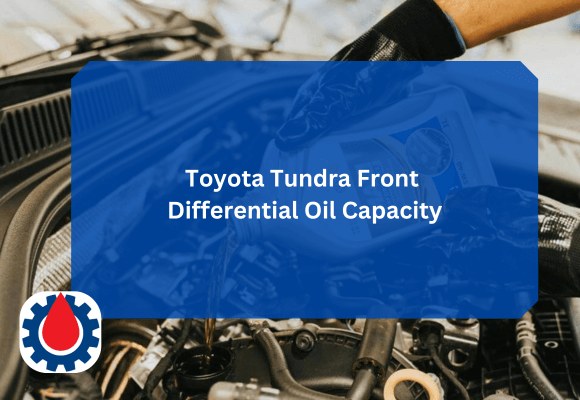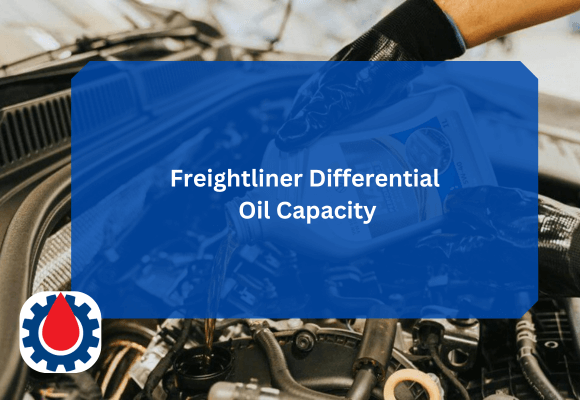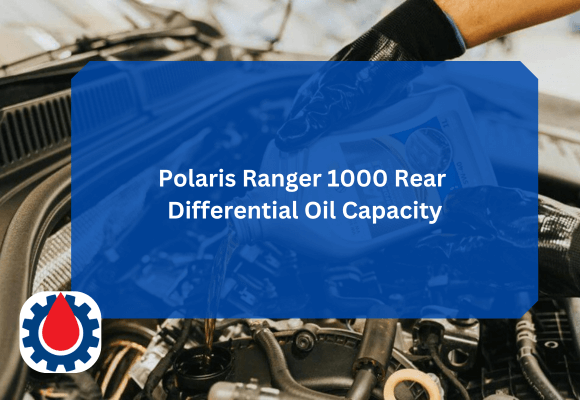This guide provides a detailed engine oil capacity chart for all Land Rover models, including the recommended oil type and viscosity. Whether you drive a classic Defender or a modern Range Rover, having this chart on hand will help with DIY oil changes or ensure your mechanic uses the correct oil specifications.
Land Rover Engine Oil Capacity Chart
| Model | Engine | Year Range | Oil Capacity (Liters / Quarts) |
|---|---|---|---|
| Defender 90/110 (Old Gen) | 2.5L Tdi Diesel | 1990–1998 | 6.8 L / 7.2 Qt |
| Defender 90/110 (Old Gen) | 3.9L V8 Petrol | 1990–1998 | 6.5 L / 6.9 Qt |
| Defender Puma | 2.4L / 2.2L Diesel | 2007–2016 | 7.0 L / 7.4 Qt |
| Defender (L663) | 2.0L i4 Turbo Diesel (D200) | 2020–Present | 5.5 L / 5.8 Qt |
| Defender (L663) | 3.0L I6 Mild-Hybrid (P400) | 2020–Present | 7.0 L / 7.4 Qt |
| Defender (L663) | 5.0L V8 Supercharged (P525) | 2022–Present | 8.5 L / 9.0 Qt |
| Discovery 1 | 3.9L / 4.0L V8 Petrol | 1989–1998 | 6.5 L / 6.9 Qt |
| Discovery 1 | 2.5L 200Tdi / 300Tdi Diesel | 1989–1998 | 6.8 L / 7.2 Qt |
| Discovery 2 | 4.0L V8 Petrol | 1998–2004 | 6.8 L / 7.2 Qt |
| Discovery 2 | 2.5L TD5 Diesel | 1998–2004 | 7.2 L / 7.6 Qt |
| Discovery 3 (LR3) | 2.7L V6 Diesel | 2004–2009 | 7.2 L / 7.6 Qt |
| Discovery 3 (LR3) | 4.4L V8 Petrol | 2004–2009 | 6.9 L / 7.3 Qt |
| Discovery 4 (LR4) | 3.0L TDV6 / SDV6 Diesel | 2009–2016 | 7.7 L / 8.1 Qt |
| Discovery 4 (LR4) | 5.0L V8 Petrol | 2009–2013 | 8.0 L / 8.5 Qt |
| Discovery 4 (LR4) | 3.0L V6 Supercharged Petrol | 2014–2016 | 8.0 L / 8.5 Qt |
| Discovery 5 (L462) | 2.0L i4 Petrol (P250/P300) | 2017–Present | 5.5 L / 5.8 Qt |
| Discovery 5 (L462) | 2.0L i4 Diesel (D180/D240) | 2017–Present | 5.5 L / 5.8 Qt |
| Discovery 5 (L462) | 3.0L V6 Petrol | 2017–Present | 6.5 L / 6.9 Qt |
| Discovery 5 (L462) | 3.0L V6 Diesel (SDV6) | 2017–2020 | 7.7 L / 8.1 Qt |
| Discovery 5 (L462) | 3.0L I6 Mild-Hybrid (D300) | 2021–Present | 7.0 L / 7.4 Qt |
| Discovery Sport (L550) | 2.0L i4 Petrol (P200/P250) | 2015–Present | 5.5 L / 5.8 Qt |
| Discovery Sport (L550) | 2.0L i4 Diesel (D150/D180) | 2015–Present | 5.5 L / 5.8 Qt |
| Discovery Sport (L550) | 1.5L i3 PHEV (P300e) | 2020–Present | 4.9 L / 5.2 Qt |
| Freelander 1 | 1.8L I4 Petrol | 1997–2006 | 4.5 L / 4.8 Qt |
| Freelander 1 | 2.5L V6 Petrol | 1997–2006 | 5.5 L / 5.8 Qt |
| Freelander 1 | 2.0L Diesel (TD4) | 2001–2006 | 5.8 L / 6.1 Qt |
| Freelander 2 (LR2) | 2.2L TD4 / SD4 Diesel | 2006–2014 | 6.0 L / 6.3 Qt |
| Freelander 2 (LR2) | 3.2L I6 Petrol | 2006–2012 | 6.5 L / 6.9 Qt |
| Freelander 2 (LR2) | 2.0L i4 Turbo Petrol | 2012–2014 | 5.5 L / 5.8 Qt |
| Range Rover Classic | 3.5L / 3.9L / 4.2L V8 Petrol | 1970–1995 | 6.5 L / 6.9 Qt |
| Range Rover Classic | 2.4L / 2.5L Diesel | 1986–1994 | 6.8 L / 7.2 Qt |
| Range Rover P38 | 4.0L / 4.6L V8 Petrol | 1994–2002 | 6.8 L / 7.2 Qt |
| Range Rover P38 | 2.5L TD6 Diesel | 1994–2002 | 7.2 L / 7.6 Qt |
| Range Rover L322 | 3.0L TD6 Diesel | 2002–2006 | 7.2 L / 7.6 Qt |
| Range Rover L322 | 4.4L V8 Petrol (BMW) | 2002–2005 | 8.0 L / 8.5 Qt |
| Range Rover L322 | 4.4L / 4.2L Supercharged V8 | 2006–2012 | 8.5 L / 9.0 Qt |
| Range Rover L322 | 3.6L TDV8 Diesel | 2007–2010 | 8.0 L / 8.5 Qt |
| Range Rover L322 | 4.4L TDV8 Diesel | 2011–2012 | 8.5 L / 9.0 Qt |
| Range Rover L405 | 3.0L TDV6 Diesel | 2013–2021 | 7.7 L / 8.1 Qt |
| Range Rover L405 | 4.4L SDV8 Diesel | 2013–2021 | 8.5 L / 9.0 Qt |
| Range Rover L405 | 3.0L V6 Supercharged Petrol | 2013–2021 | 8.0 L / 8.5 Qt |
| Range Rover L405 | 5.0L V8 Supercharged Petrol | 2013–2021 | 8.5 L / 9.0 Qt |
| Range Rover L460 (New) | 3.0L I6 Petrol Mild-Hybrid | 2022–Present | 7.0 L / 7.4 Qt |
| Range Rover L460 (New) | 3.0L I6 Diesel Mild-Hybrid | 2022–Present | 7.0 L / 7.4 Qt |
| Range Rover L460 (New) | 4.4L V8 Twin Turbo Petrol | 2022–Present | 8.5 L / 9.0 Qt |
| Range Rover Evoque (L538) | 2.0L i4 Petrol (P200/P250) | 2011–2019 | 5.5 L / 5.8 Qt |
| Range Rover Evoque (L538) | 2.0L i4 Diesel (D150/D180) | 2011–2019 | 5.5 L / 5.8 Qt |
| Range Rover Evoque (L551) | 2.0L i4 Petrol (P200/P300) | 2020–Present | 5.5 L / 5.8 Qt |
| Range Rover Evoque (L551) | 2.0L i4 Diesel (D165/D200) | 2020–Present | 5.5 L / 5.8 Qt |
| Range Rover Evoque PHEV | 1.5L i3 Turbo + Electric | 2020–Present | 4.9 L / 5.2 Qt |
| Range Rover Sport (L320) | 2.7L TDV6 Diesel | 2005–2009 | 7.2 L / 7.6 Qt |
| Range Rover Sport (L320) | 3.6L TDV8 Diesel | 2007–2013 | 8.0 L / 8.5 Qt |
| Range Rover Sport (L320) | 4.2L / 5.0L V8 Petrol | 2005–2013 | 8.5 L / 9.0 Qt |
| Range Rover Sport (L494) | 3.0L V6 Petrol | 2014–2022 | 6.5 L / 6.9 Qt |
| Range Rover Sport (L494) | 3.0L V6 Diesel (TDV6/SDV6) | 2014–2022 | 7.7 L / 8.1 Qt |
| Range Rover Sport (L494) | 5.0L V8 Supercharged Petrol | 2014–2022 | 8.5 L / 9.0 Qt |
| Range Rover Sport (L461) | 3.0L I6 Petrol Mild-Hybrid | 2023–Present | 7.0 L / 7.4 Qt |
| Range Rover Sport (L461) | 3.0L I6 Diesel Mild-Hybrid | 2023–Present | 7.0 L / 7.4 Qt |
| Range Rover Sport (L461) | 4.4L V8 Twin Turbo Petrol | 2023–Present | 8.5 L / 9.0 Qt |
| Range Rover Sport PHEV | 3.0L I6 PHEV (P440e/P510e) | 2023–Present | 7.0 L / 7.4 Qt |
| Range Rover Velar (L560) | 2.0L i4 Petrol (P250/P300) | 2017–Present | 5.9 L / 6.2 Qt |
| Range Rover Velar (L560) | 2.0L i4 Diesel (D180/D240) | 2017–Present | 5.9 L / 6.2 Qt |
| Range Rover Velar (L560) | 3.0L I6 Mild-Hybrid (P400) | 2020–Present | 6.5 L / 6.9 Qt |
| Range Rover Velar PHEV | 2.0L i4 PHEV (P400e) | 2021–Present | 5.9 L / 6.2 Qt |
Related Lexus Engine Oil Capacity Chart(For All Models)
Best Engine Oil For Land Rover Engines
1. Castrol EDGE Professional LL03 5W-30
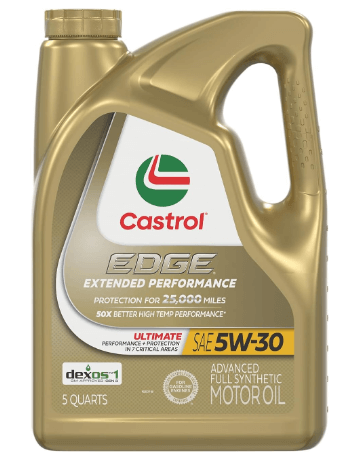
A fully synthetic oil engineered for modern Land Rover engines, offering superior performance and engine cleanliness.
- Specifically approved for Land Rover engines.
- Titanium FST technology for reduced friction.
- Excellent wear protection under extreme pressure.
2. Mobil 1 ESP Formula 5W-30
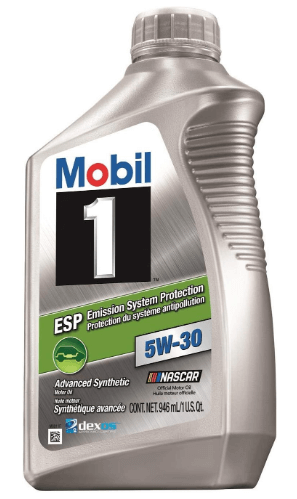
Premium synthetic oil designed to extend engine life while maintaining efficiency and protecting emission systems.
- Low ash content for compatibility with DPF and catalytic converters.
- Enhances fuel efficiency while reducing engine deposits.
- Strong cold-start performance.
3. Liqui Moly Top Tec 4200 5W-30
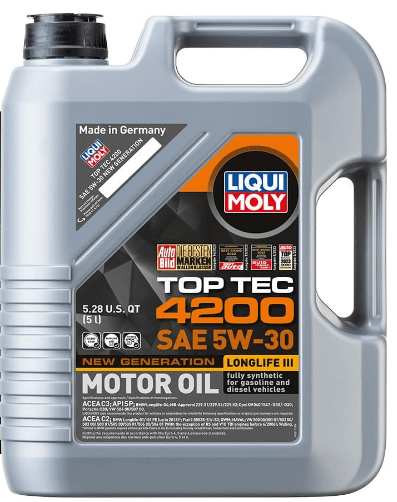
German-made synthetic oil formulated to meet stringent European car manufacturer requirements, including Land Rover.
- Meets ACEA C3 specifications suitable for Land Rover.
- High lubrication reliability under all operating conditions.
- Supports longer oil change intervals.
4. Shell Helix Ultra Professional AV-L 5W-30
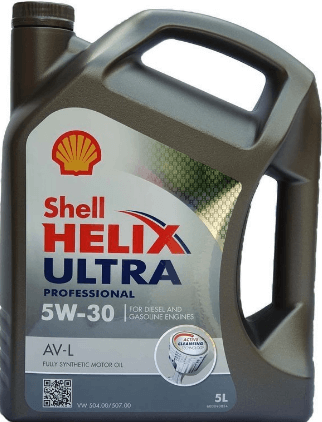
Advanced synthetic oil is produced from natural gas for exceptional engine protection and performance.
- Made from natural gas using Shell’s PurePlus technology.
- Provides outstanding sludge and wear protection.
- Designed for high-performance European engines.
5. Valvoline SynPower MST 5W-30
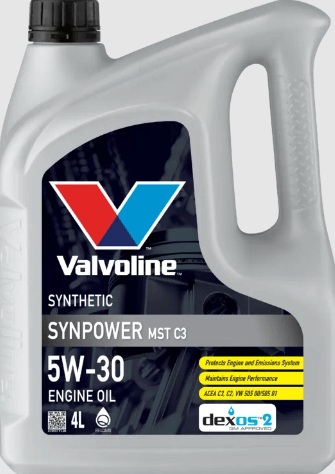
Fully synthetic oil designed for modern diesel and gasoline engines, protecting exhaust systems and extending engine life.
- Mid SAPS formulation to protect exhaust after-treatment systems.
- Delivers excellent high-temperature stability.
- Strong defense against corrosion and deposits.
Related MOA engine oil additive(Benefits & 5 Best Additive in 2025)
Best Practices for Changing Oil in Land Rovers
- Warm Up the Engine: Warm oil drains faster and carries away more contaminants.
- Use Quality Filters: Use OEM or high-quality oil filters to ensure optimal filtration.
- Replace Washer: Always change the crush washer on the drain plug to avoid leaks.
- Check Oil Level After Refill: Let the engine run for a few minutes and recheck the dipstick to ensure the oil level is correct.
- Reset Oil Service Light: Most modern Land Rovers require a manual reset through the infotainment or dashboard system after an oil change.
Related Best Oil for High Performance Engines(Top 5 Best 2025)
FAQs
What oil does Land Rover recommend?
Land Rover recommends fully synthetic engine oil that meets their proprietary specifications, such as STJLR.03.5005 for older models and STJLR.51.5122 or 51.5124 for newer engines. The most commonly used viscosities are 0W-20, 5W-30, and 10W-40, depending on the model year and engine type. Always follow your owner’s manual for exact requirements.
How many litres of oil does a Land Rover take?
The oil capacity depends on the model and engine. Most Land Rovers take between 5.5 and 8.5 litres of oil. Smaller engines like the 2.0L typically require around 5.5 litres, while larger engines like the 5.0L V8 can take up to 8.5 litres.
Related Toyota Engine Oil Capacity Chart(Model A to Z)
How much oil does a Rover V8 take?
The classic Rover V8 engine generally takes around 6.5 to 6.8 litres of engine oil. This includes the popular 3.5L, 3.9L, and 4.0L versions used in older Land Rovers and Range Rovers.
How many litres does a Land Rover take?
If you’re referring to engine oil, most Land Rover engines take between 5.5 and 8.5 litres. If you mean fuel capacity, most models have fuel tanks ranging from about 65 to 105 litres, depending on the vehicle size and generation.
Do Land Rovers use a lot of fuel?
Yes, Land Rovers are generally not considered fuel-efficient due to their size, weight, and powerful engines. Average fuel consumption ranges from 10 to 15 litres per 100 kilometers, with older V8 models consuming even more. Newer hybrid and diesel models are more efficient, but still above average compared to smaller SUVs.
Related Honda Engine Oil Capacity Chart(Models A to Z)
What does Td5 mean?
Td5 stands for “Turbo diesel 5-cylinder.” It is a 2.5-litre inline five-cylinder diesel engine developed by Land Rover, used in models like the Defender and Discovery between 1998 and 2006. Known for its durability and electronic engine management system, the Td5 is a favorite among enthusiasts.
How many litres per 100km is a Land Rover Discovery?
Fuel consumption varies by engine and year. A Land Rover Discovery Td5 averages around 11 to 12 litres per 100km. Newer Discovery models with Ingenium diesel engines can achieve 7 to 9 litres per 100km, while petrol V6 or V8 versions typically consume 11 to 14 litres per 100km.
What is the best oil for a Rover V8?
The best oil for a classic Rover V8 engine is a high-quality synthetic or semi-synthetic 10W-40 or 15W-40 motor oil. Look for oils that meet API SL or higher or ACEA A3/B3 standards. For hot climates or older engines, some owners prefer 20W-50 for added protection but always consider engine condition and manufacturer specs.


